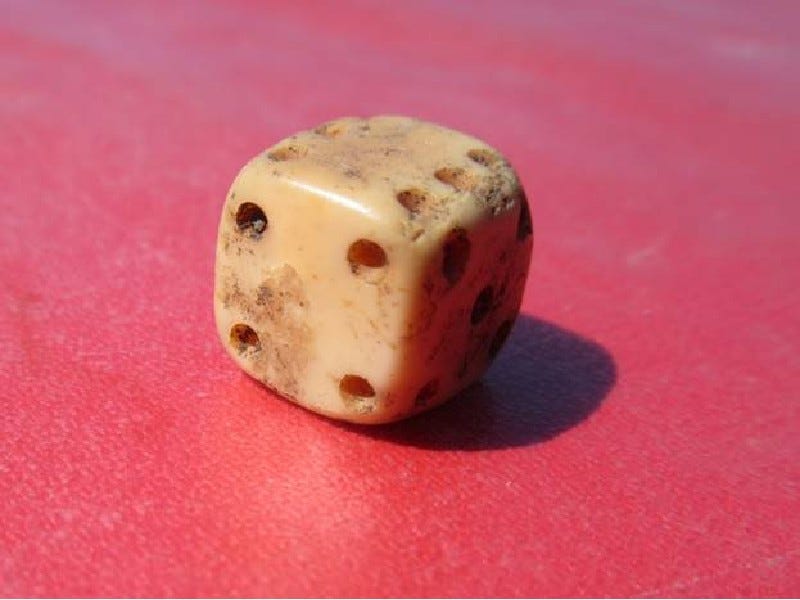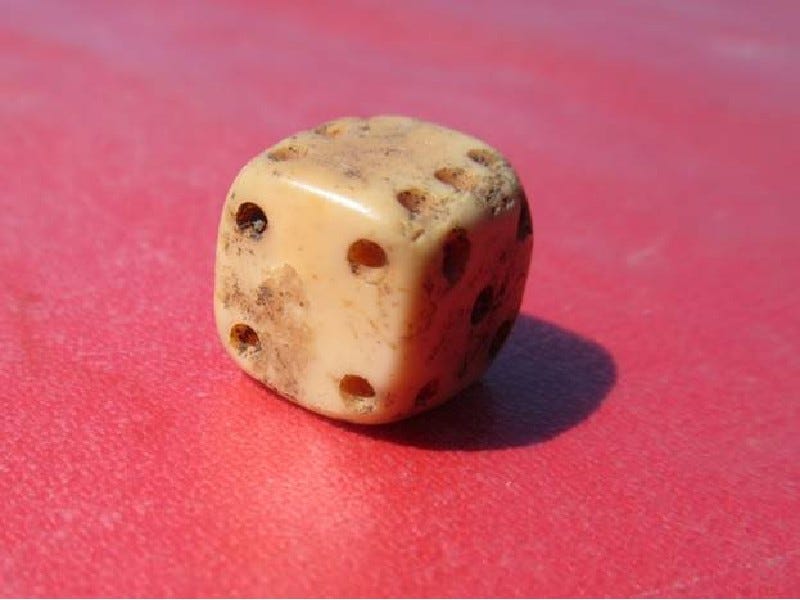
MACKINAW CITY (WWJ) – Tuesday is the official opening day of the archaeological field season at Colonial Michilimackinac, but the archaeology team made an early discovery last week.
While Field Supervisor Beth Kerton-Schmit was preparing the site for the season last Friday, she discovered a bone or ivory gaming die, believed to be centuries old.
Colonial Michilimackinac is a reconstructed fort and fur trading village located just west of the Mackinac Bridge featuring demonstrations and tours by costumed interpreters and archaeological digs throughout the summer.
The archaeological dig at Michilimackinac began in 1959, making it one of the longest-running archaeology programs in North America.
Crews are currently excavating House E of the Southeast Rowhouse, where crews have made “numerous exciting finds” in recent years. Discoveries include a Compagnie des Indes lead seal dating between 1717 and 1769 and a brass serpentine side plate for a British trade gun.
Dr. Lynn Evans, Curator of Archaeology for Mackinac State Historic Parks, says this was the second die found in House E at Colonial Michilimackinac.

House E was first occupied by Charles Henri Desjardins de Rupallay de Gonneville, and later by an as-yet-unidentified English trader.
More information on the site can be found on the Mackinac State Historic Parks website.


